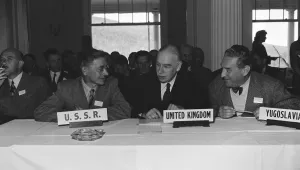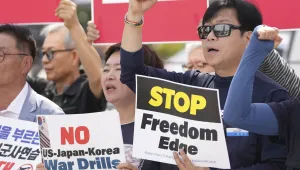International Security is America's leading peer-reviewed journal of security affairs.
Summary
Actors turn to negotiating or spoiling as a means of contesting not only what a proposed peace settlement entails but also who has the power to decide the terms. Conflicts are more likely to witness negotiating and spoiling for purposes of internal contestation to the degree that one or both of the warring parties lack an institutionalized system of legitimate representation. Whether internal contestation leads a group to act as a peace maker or as a peace breaker is conditioned by its position in the internal balance of power. Two eras in the Palestinian national movement–the Palestine Liberation Organization's bid to join the Geneva peace conference in 1973-74 and its engagement in the Oslo peace process from 1993 to 2000–illustrate these propositions. Leaders of national movements and rebel groups, no less than leaders of states, are systematically influenced by domestic politics. As such, sponsors of peace processes should expect spoiler problems unless a movement heals rifts within its ranks.
Pearlman, Wendy. “Spoiling Inside and Out: Internal Political Contestation and the Middle East Peace Process.” Winter 2008/09





